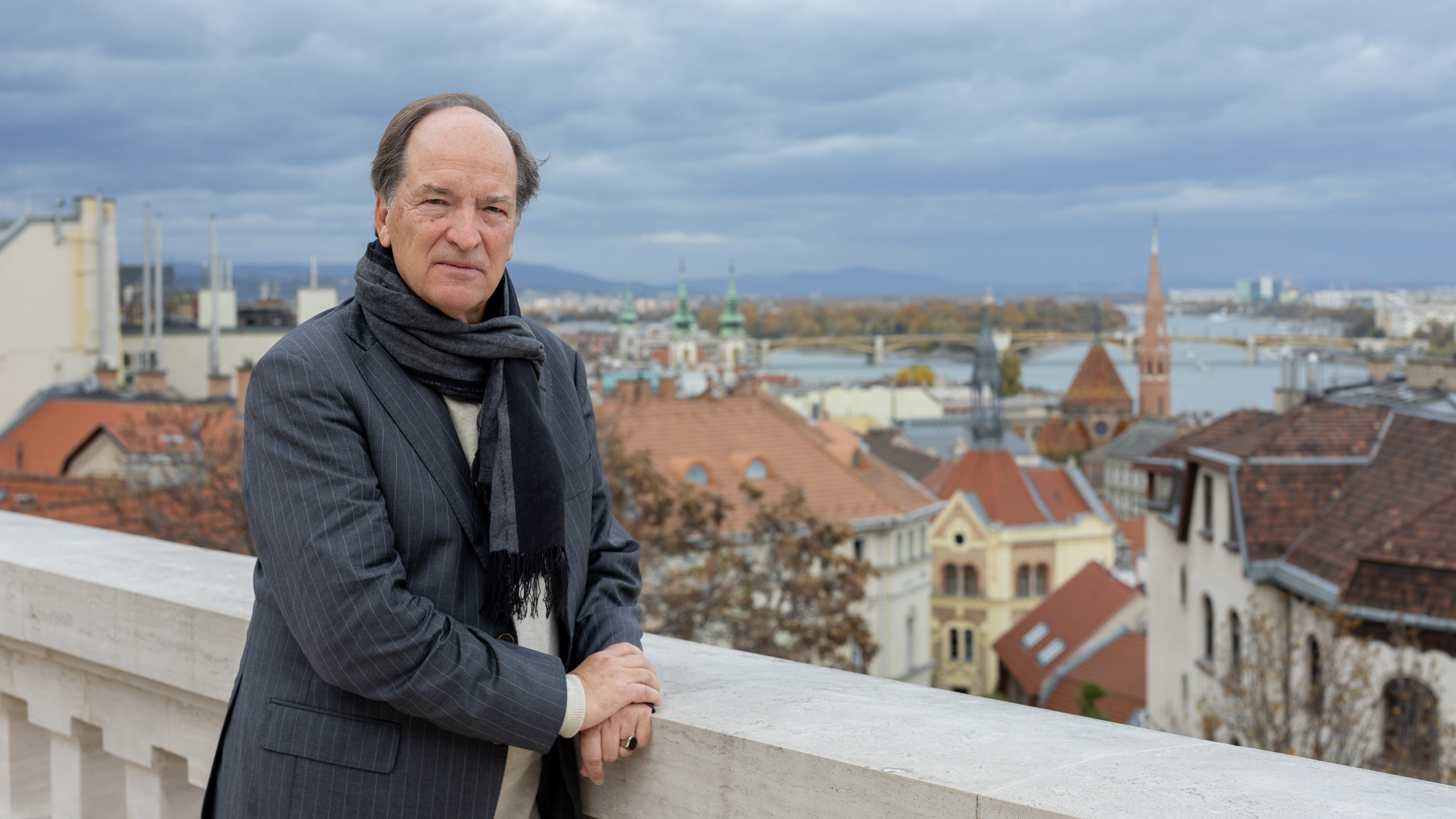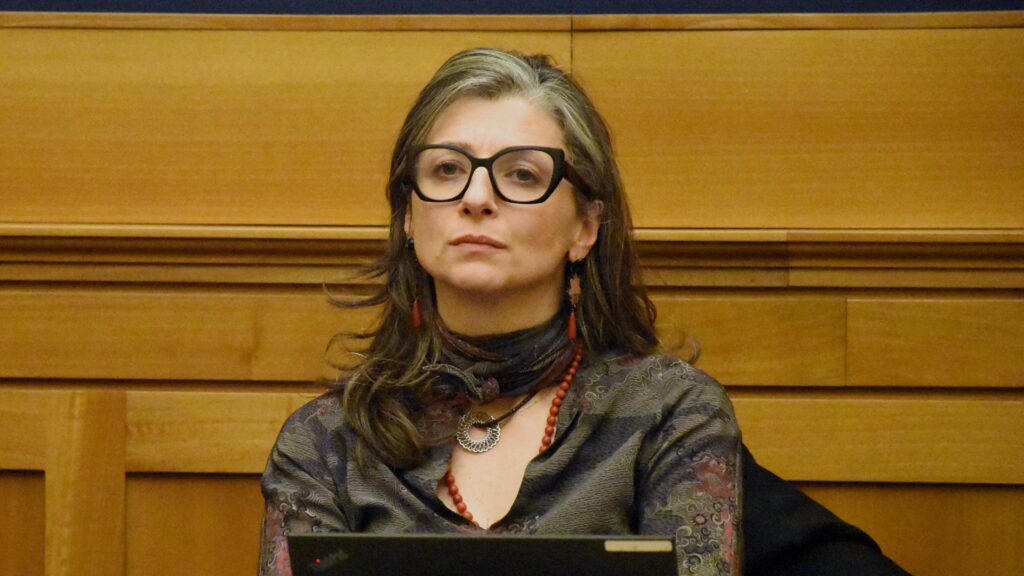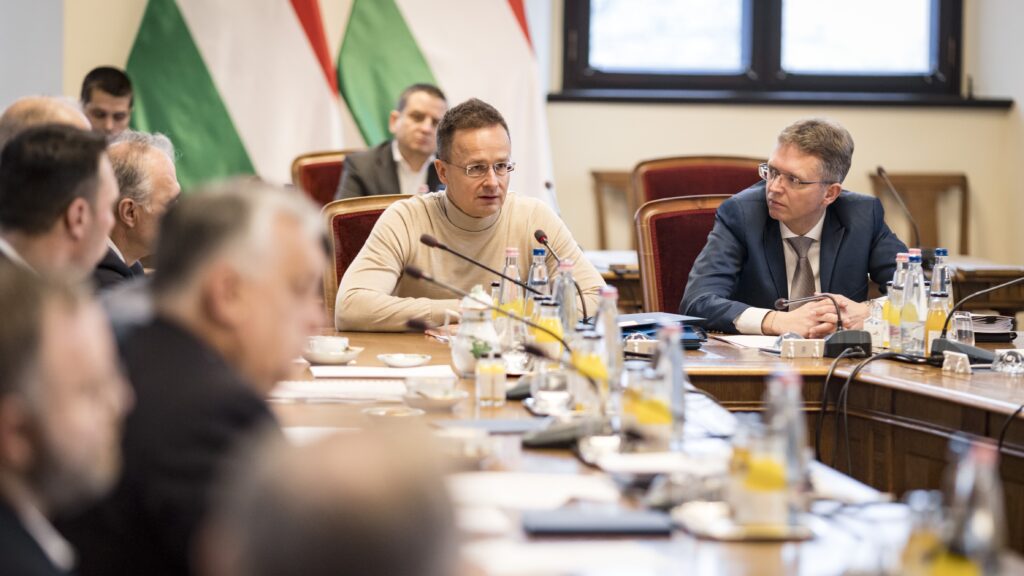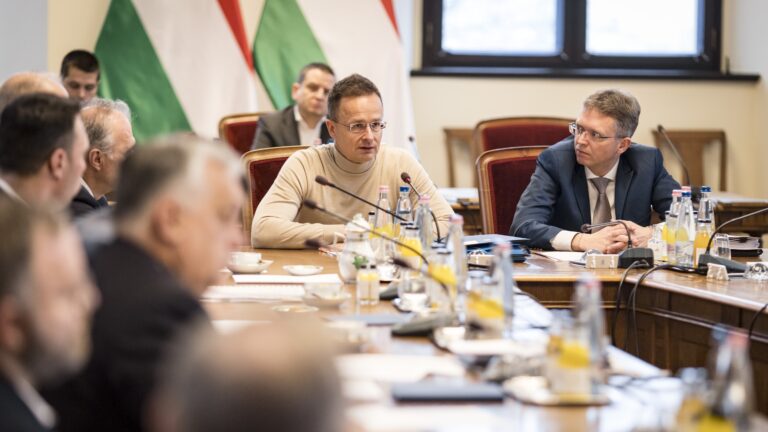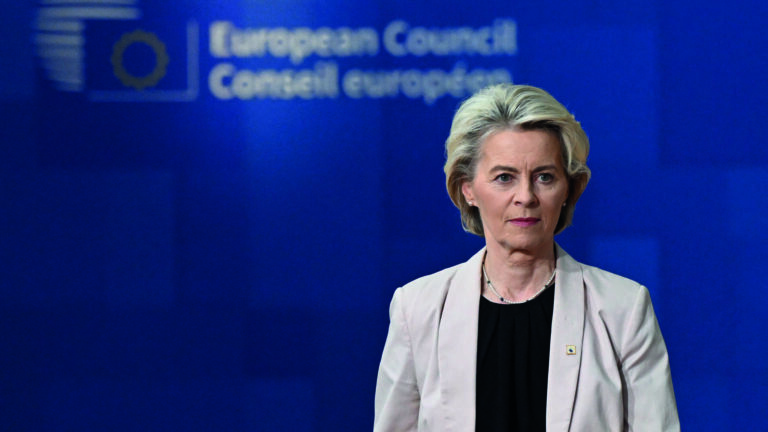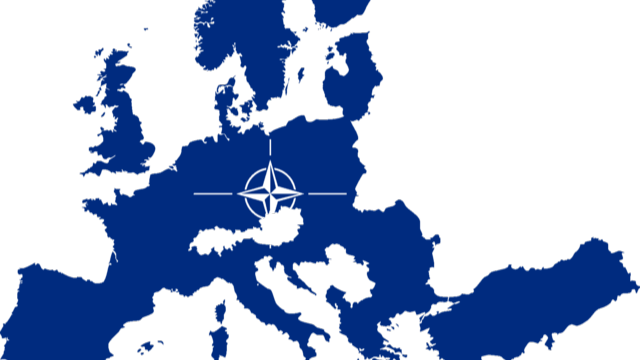Hall Gardner is a Professor Emeritus in the Department of International and Comparative Politics at the American University of Paris. He is an international relations theorist, editorialist, TV commentator, poet and novelist. His many books on global politics and American global strategy blend a historical and theoretical approach with contemporary international affairs, concentrating on questions involving NATO and European Union enlargement, the collapse of the Soviet Union and its impact on China and Eurasia in general, as well as the global ramifications of the ‘war on terrorism’.
Professor Gardner visited Hungary as a research fellow invited by the Hungarian Institute of International Affairs.
***
Under what conditions do you think the war in Ukraine can end?
Right now, Russia is moving slowly with its meat grinder towards Pokrovsk, the major city that would give it leverage to take over the rest of the Donbas, if it chooses to do so. If they stop there, then we might be able to get a ceasefire. But, in my view, they want to push forward. And Zelenskyy says: No, we’re not going to let them get it, and we’re going to fight for two to three years more. So I honestly can’t give you an answer, unless President Trump and China begin to put more pressure on both Russia and Ukraine to pull back, and they can do that if they really want to.
At the moment, though, we’re into a new nuclear threat game, as Putin is testing his nukes, and President Trump said we’re going to test ours. And we have to remember that the New START Treaty is going to expire in February 2026, so this gives us a limited time to begin to try to resolve this war and deal with the possibility of an all-out nuclear arms race if it doesn’t end. So I think this is a very crucial moment in the next six months for all sides to think this through and start putting pressure on Russia and Ukraine to try to end the war.
Ukraine needs to face territorial loss in some form. President Putin insists on a little bit more than the ceasefire line. Is there any possibility in these six months that Trump and Zelenskyy will give in and give all four contested territories to Russia?
Putin has hinted that he might not take all four territories, so there might be some leeway, but he definitely wants Donetsk, so that’s the real point right now to consider. Like Finland, the Soviets took 20 per cent of Karelia and other lands. So the Finnish analogy might become the reality that Ukraine may be facing, in which Russia is taking almost as much territory as Finland lost, and yet they were able to sign a neutrality agreement, and they lived and coexisted side by side throughout the whole Cold War. Now that’s changed when Finland joined NATO, and that’s going to create new tensions in the north.
‘This is a very crucial moment in the next six months for all sides to think this through’
Ukraine had declared itself neutral when it first became independent, and it has to affirm that, both on its own and internationally—that might be a way to prevent or stop Putin from moving forward. And then you put international peacekeepers along the line of contact, the international peacekeepers accepted by both Ukraine and Russia, who would be neutral. They will probably not be the coalition of the willing that the Europeans are coming up with, but an International Peacekeeping Force, which can be under a NATO–Russia or NATO–Ukraine Council overseeing the deployments. And Russia would therefore have an oversight into what kind of forces Ukraine has, and Ukraine could develop a porcupine defence overseen by international observers, and that would be perfectly legitimate. So I think there’s a way out of this. But Ukraine will have to accept a loss, in my view.
Way before the war broke out in 2022, many experts, including yourself, warned that the expansion of NATO took a wrong turn, and giving up the idea of a neutral Ukraine was a mistake, too. Is there any chance to construct a new security agreement between Europe, America and Russia that includes Russia’s security concerns?
That’s exactly what I’m arguing for, a new beginning. Simply, ending the war with a ceasefire in Ukraine is not sufficient. We need a new security concept altogether, and the fact that NATO has expanded even further to Sweden and Finland opens up new tensions in the Baltic and Arctic regions. So it’s absolutely crucial that Ukraine outlines its formal neutrality.
You can also talk about the formal neutrality for Georgia, Moldova and perhaps Armenia. Now that Armenians have problems in the CSTO, you can create a neutral belt of states in this region of Europe, but you have to deconflict Kaliningrad. Since NATO expanded, the Russians have built up Kaliningrad as a military enclave. Kaliningrad is positioned to be a great trade hub between Europe and the Silk Road trade from Eurasia, and trade from Ukraine. We have to think in the big picture. It all starts with deconflicting Kaliningrad, where a confrontation between NATO and Russian troops could easily have occurred, and creating a new free trade zone with Kaliningrad as the centre of it in the north. NATO could pull back, and Russia could begin to pull back its forces.
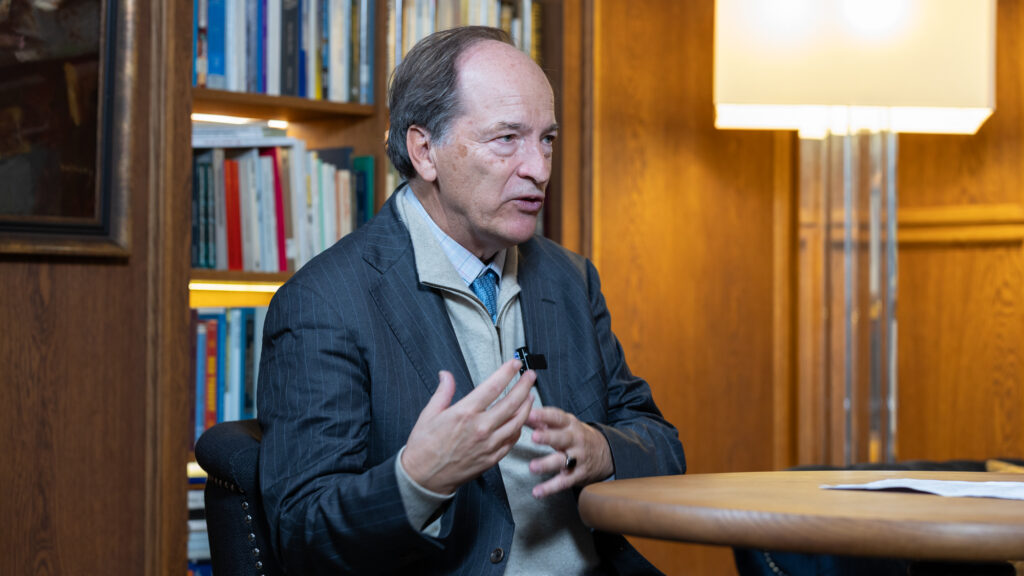
But we can’t do that if we don’t have a new START Treaty, or some sort of negotiations that begin to wind down the arms race that we’re marching into. So my point is, find the line which the Russians and Ukrainians can accept, put international peacekeepers there, and then start working on deconflicting Kaliningrad and the Baltic region—and then we might be able to form a real new relationship. I’m not saying Europe should totally give up on its buildup. But Europe should unify more. It needs more autonomy from the Americans.
‘It’s absolutely crucial that Ukraine outlines its formal neutrality. You can also talk about the formal neutrality for Georgia, Moldova and perhaps Armenia’
Who is responsible for not preventing the war?
The Budapest Memorandum was signed here in 1994, and everything the Russians threatened during that period—when Ukraine had nuclear weapons—has happened since then, with NATO enlargement, and it really started with George Bush’s insistence on expanding NATO in 2008 at the Bucharest Summit. They should have vetoed that and worked on creating a neutral Ukraine, and worked with the Russians.
President Medvedev at that time wanted a new European Security Treaty. He was just totally ignored, and there were no real negotiations for a new European security. And Obama tried to reset relations, but it was clear to me it wasn’t going to happen because NATO was going to continue to expand to the regions where the Russians would react.
China knows exactly that if Russia fails, all the Western pressure will be concentrated on China. There was a meeting between Trump and Xi Jinping. Can Trump get the Chinese president to step in and push the Russians back to the peace talks?
The Chinese are going to want concessions for that, and those concessions revolve around Taiwan primarily. They want other trade concessions, fewer sanctions, and greater market access. China needs that land link to get Russian energy. The United States wants to dominate the sea lines of communication from the Pacific to the Gulf. And that’s the real issue here.
If China unifies with Taiwan, it means China controls the sea lines of communication, because it can project its naval forces from there, and the Chinese will definitely control world trade. So Taiwan is really crucial. This is why Trump is boosting the military capabilities there, and is less concerned about Ukraine, because the Black Sea is not as crucial for American global strategy as the South China Sea and the sea lines of communication in the Pacific.
‘If China unifies with Taiwan, it means China controls the sea lines of communication’
Trump has to get the Taiwanese and Chinese to talk to each other, to develop a kind of situation where China can claim it is unified, but Taiwan can claim it is independent. It must be a tricky diplomatic game, but it can be done. And then you give international guarantees to both sides. The United States hardly has military talks with China. The Chinese are very pragmatic; when they see themselves in a problem, they usually come in and rethink it. So being tough but also being flexible might be a way for President Trump to handle the Chinese and not create conflict.
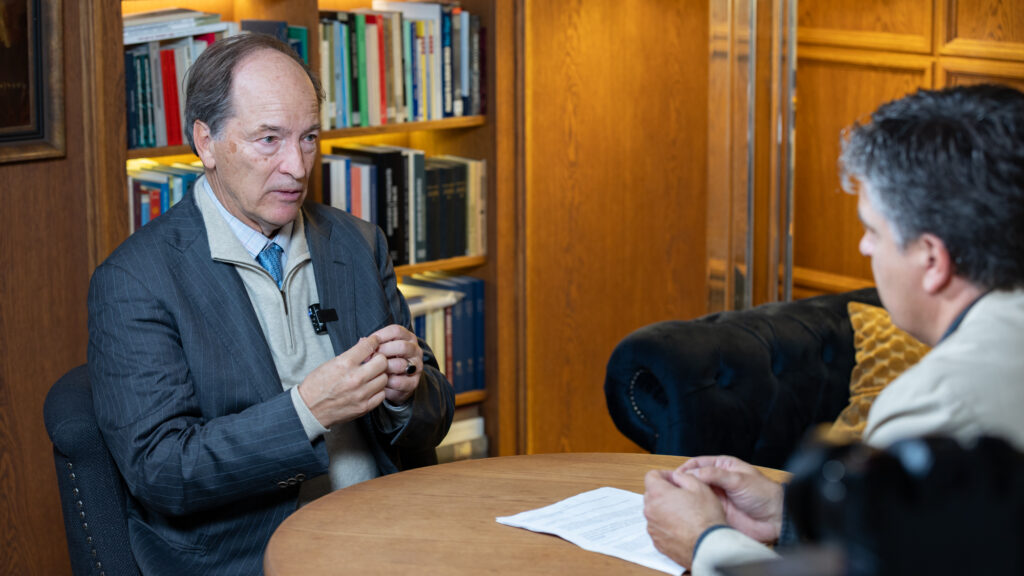
There will be a trade agreement between them, as we see.
They said that. It’s not clear what that’s going to mean yet. Trade agreements are the first step. But the demand for China to unify with Taiwan has been a national goal, and Xi Jinping has pushed for that ever since he became the leader of China. China needs Russian backing to take Taiwan, and Russia has given that and has strengthened its support for it. So it’s a really dangerous situation at the moment; Trump has to play it very delicately.
Former Foreign Minister of Singapore George Yeo said that in five years’ time, he doesn’t expect any war between the US and China, or between Taiwan and China.
You know you need to accept Chinese co-hegemony. The United States has to make compromises with China as China rises, and if it doesn’t, we will be in danger. We’ll push Russia and China even closer together, and we’ll have a Eurasian alliance that India might even join. And it looks like India is thinking about reconsidering this trade pact with the RCEP, the Regional Comprehensive Economic Partnership that would be the largest trade pact in the world if India joined, because the two biggest, most populous powers join together, and the Russia–China–India combination is something the US and Europe have to watch out for.
‘The United States has to make compromises with China as China rises, and if it doesn’t, we will be in danger’
India is normalizing its relations with China, and it’s a very bad development for the US. What is your opinion?
Well, this is interesting because India is smart. They’re recognizing that if the US puts the sanctions on Rosneft and Lukoil, that might affect their banking, and the US will put pressure on the Indian economy and finance. So India may be looking for new sources of energy, other than Russia, which would appeal to America. But at the same time, they’re also looking towards the RCEP, and if India joins, it would just swamp the US and European economic potential.
So India, in my view, might back off a little bit of buying Russian energy, which they really don’t want to do, because they have such a discount. But that’s not going to hurt Russia that much. It actually strengthens China, because some of the Chinese companies will be taking over where Lukoil and Rosneft are. So suddenly, Russia will be out, but China will be in. And that wouldn’t surprise me if the Russians and the Chinese made a backdoor deal.
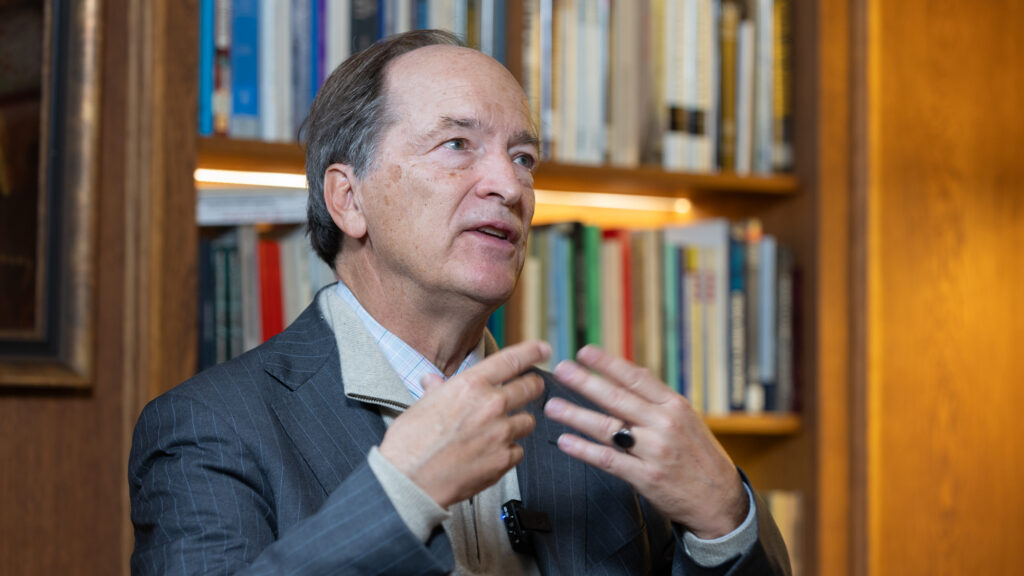
Let’s talk about the Middle East conflict. Can the Israeli–Hamas ceasefire deal hold?
Well, this conflict has been going on forever. I really didn’t think Trump was actually engaging in US-led multilateralism here. You got the Arab states getting the possibility of being peacekeepers. He’s got Egypt and Jordan involved. Europeans are in this. It’s the Trump plan for peace, but they have a Franco and Saudi plan involved, a sort of international conglomerate of different proposals, and it might come out with a two-state solution that would be a demilitarized Palestine, and it would be a new Palestinian leadership. That would not be Hamas or Fatah. So he seems to be moving in that direction, though getting there is not easy with either side.
But if you can really hold back Israel and Hamas, then maybe we can get a ceasefire, deploy international peacekeepers, and begin to create a new relationship between not just Israel and the Palestinians, but Israel and the Arab states, and Israel and Iran. Now in the background, though, Israel and Iran are still at each other’s throats, so the US has to work behind the scenes to calm that war down as well.
Palestinians saw many conflicts in the past decades, but in this conflict, buildings and services have been absolutely ruined. Can the Strip be rebuilt?
Well, the first Gaza Riviera plan was just a farce. And it really depends on whether or not you can get finance in there. The US president seems to be mobilizing funds. But the Palestinians have to have a stake in it; they need active local involvement. They need a new Palestinian leadership. Marwan Barghouti has been mentioned as a potential leader, and Trump has apparently urged his release from Israeli prison.
With this new leadership in place, we have money coming from the Arab world—there could be the creation of a demilitarized Palestinian state backed by the Gulf countries, and that would create a new relationship between the Gulf countries and Israel; with Israel having oversight, but without the ability to intervene at will. So there’s a real possibility there. But you don’t know what’s going to happen in that world; it’s a very treacherous place.
‘With this new [Palestinian] leadership in place, we have money coming from the Arab world—and there could be the creation of a demilitarized Palestinian state’
Do you think that Israel got stronger throughout this conflict, after 7 October, and after waging a multifront war against Hezbollah, Hamas and Iran?
Militarily, it’s much stronger; diplomatically, it is much weaker. It’s isolated itself in the world, and that’s not good for the Israelis. The way they went about this war was not just against Hamas. It involved the entire Palestinian population, which we can’t say was all militant.
It involved Iran as well, and Iran is still building up forces, getting hypersonic technologies, and receiving support from China, North Korea, and probably some from Russia, while developing very effective drones. So this is not over, unless the US and the international community can really get behind Israel and Iran and get them to negotiate a new agreement.
So, I think it really depends on the diplomacy. The Iranians have said that if there were a Palestinian state, a legitimate state, then they would back off. This is what should have happened ages ago. If it moves forward to set a demilitarized state with a new Palestinian leadership, I don’t think anybody could complain.
Watch the full podcast below:
Ukraine should outline its formal neutrality | Hall Gardner on Danube Lectures
Listen on Spotify: https://open.spotify.com/episode/3cWMDxn6jLKBGl5TkJpUgM?si=gz-TJN2sTpea_0ac9aUYxQ 0:00 – Introduction 0:48 – In what conditions can the Ukrainian war end? 3:02 – Will Ukraine lose all four Russian-occupied regions? 5:57 – Is there any chance of obtaining a new security agreement between Europe, America, and Russia? 8:50 – Who is responsible for not preventing the Ukrainian war?
Related articles:

